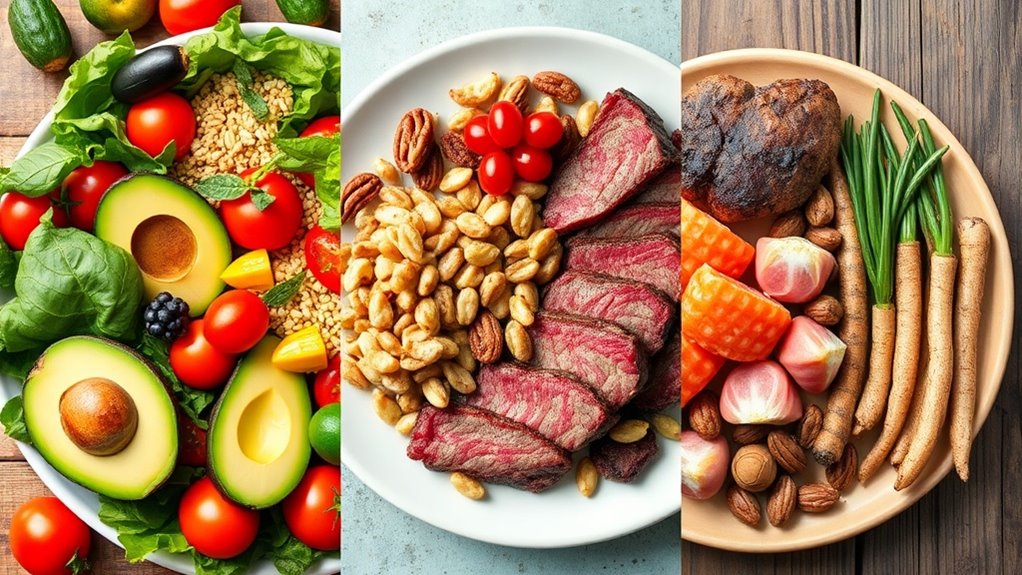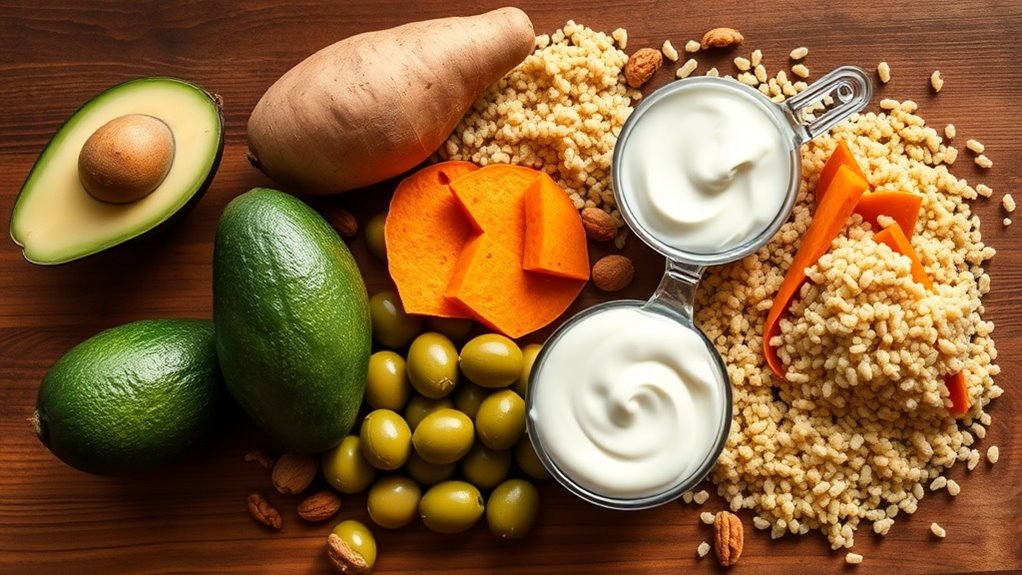Can Eating Carbs Actually Help You Burn Fat Faster.
Eating carbs can fuel your workouts, stabilize your blood sugar, and support fat loss. They play a vital role in your metabolism, especially when you choose the right types and timing. Incorporating complex carbs into your diet can enhance your energy levels and recovery, but how you pair them with other nutrients matters too. Understanding the intricacies of carb consumption could be the key to achieving faster fat burning. What are the best practices for optimizing your carb intake?
Key Takeaways
- Carbohydrates are the primary energy source, fueling workouts and daily activities essential for effective fat burning.
- Complex carbs provide sustained energy, helping maintain stable blood sugar levels and preventing fat storage.
- Timing carb intake around workouts optimizes fat loss by utilizing glycogen and enhancing recovery post-exercise.
- Combining carbs with protein and healthy fats increases satiety, reducing cravings and supporting weight management efforts.
- Balanced carb consumption supports metabolic health, preventing starvation mode and promoting fat-burning efficiency.
The Role of Carbohydrates in Metabolism
Carbohydrates play an essential role in your metabolism, acting as the body’s primary source of energy.
When you consume carbs, they break down into glucose, fueling your cells and supporting essential functions.
This energy is essential for workouts and daily activities, which can enhance your weight loss efforts.
When you limit carbs too drastically, your body may enter starvation mode, slowing metabolism and hindering fat burning.
Instead, incorporating the right amount of carbs can provide the energy needed to maintain activity levels, ultimately aiding in weight loss and promoting overall health.
Balance is key to optimizing your metabolism effectively. Additionally, consuming complex carbs can help maintain stable blood sugar levels, further supporting your metabolic health.
Types of Carbohydrates: Simple vs. Complex
Understanding the differences between simple and complex carbohydrates is essential for optimizing your diet.
Simple carbohydrates, found in sugary foods and drinks, digest quickly, leading to rapid spikes in energy and blood sugar.
In contrast, complex carbohydrates, like whole grains and legumes, contain fiber and take longer to break down, providing sustained energy and promoting satiety.
This slower digestion helps you feel fuller for longer, which can aid in weight management.
Choosing complex carbs over simple ones supports your overall health and can enhance your body’s efficiency in burning fat, ultimately aligning with your fitness goals. Additionally, moderation in carb intake is crucial to ensure that you are meeting your weight loss objectives effectively.
How Carbs Influence Insulin Levels
How do carbohydrates impact insulin levels in your body?
When you consume carbs, your body breaks them down into glucose, leading to increased blood sugar levels.
In response, your pancreas releases insulin, a hormone that regulates glucose uptake by cells.
This process helps lower blood sugar but can also promote fat storage if insulin levels remain elevated.
Research shows that choosing complex carbohydrates with a lower glycemic index can lead to more stable insulin responses. Additionally, balancing meals with whole foods can further stabilize insulin levels and support weight management.
The Importance of Timing: When to Eat Carbs
When’s the best time to eat carbs for maximum fat burning? Research suggests that timing matters. Consuming carbs around your workouts can optimize fat loss. Post-exercise, your body is primed to use glycogen for recovery, reducing fat storage. Here’s a quick guide:
| Time of Day | Carb Type |
|---|---|
| Pre-Workout | Complex Carbs |
| Post-Workout | Simple Carbs |
| Evening Snack | Moderate Carbs |
Incorporating mindful eating practices can further enhance your ability to utilize carbs effectively and promote overall fat loss.
Combining Carbs With Other Nutrients for Optimal Fat Loss
Combining carbs with protein can improve muscle recovery and sustain energy levels, helping you stay active and burn more calories. Including healthy fats, like avocados or nuts, slows digestion, stabilizing blood sugar levels and reducing cravings. This balanced approach not only fuels your workouts but also supports overall metabolic function. Research shows that meals rich in both protein and carbs can increase satiety, aiding in weight management. Additionally, incorporating healthy fats into your meals can boost metabolism and enhance satiety, further supporting your fat loss goals.




